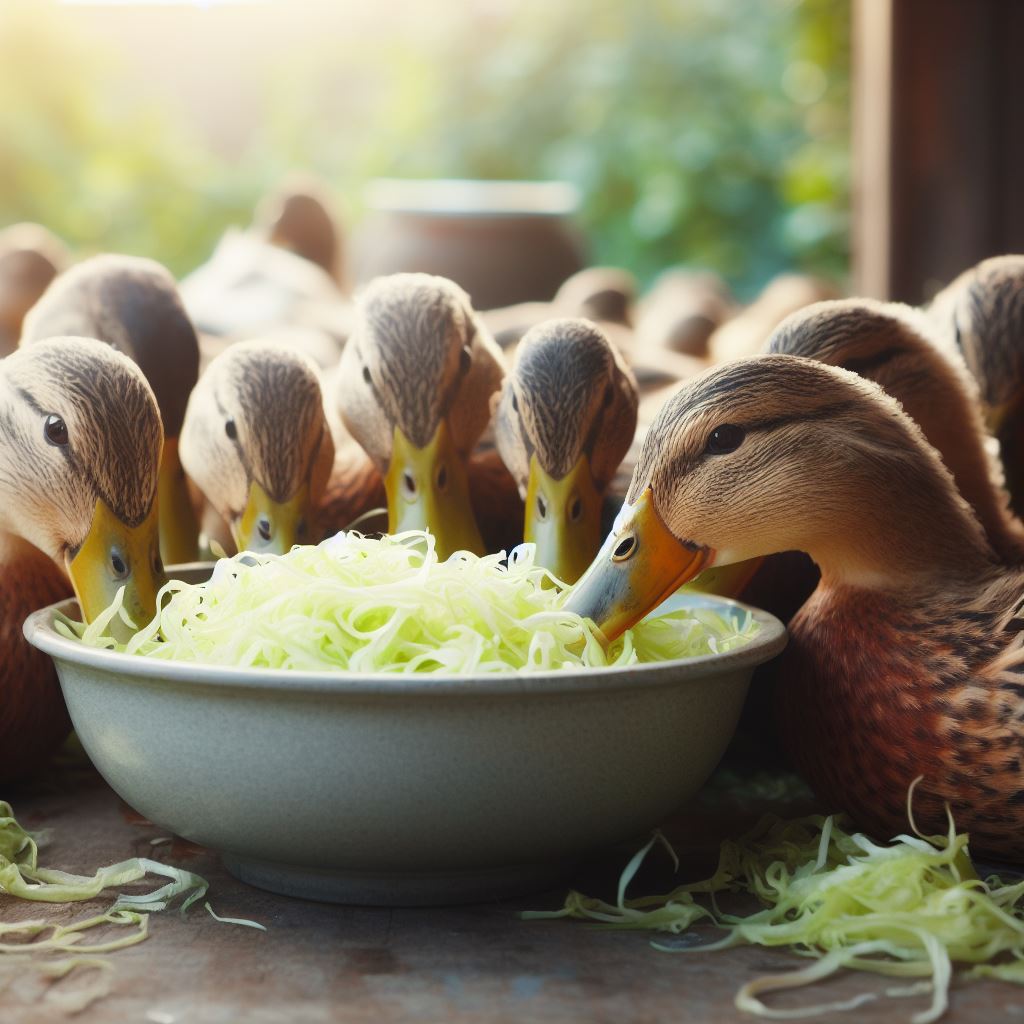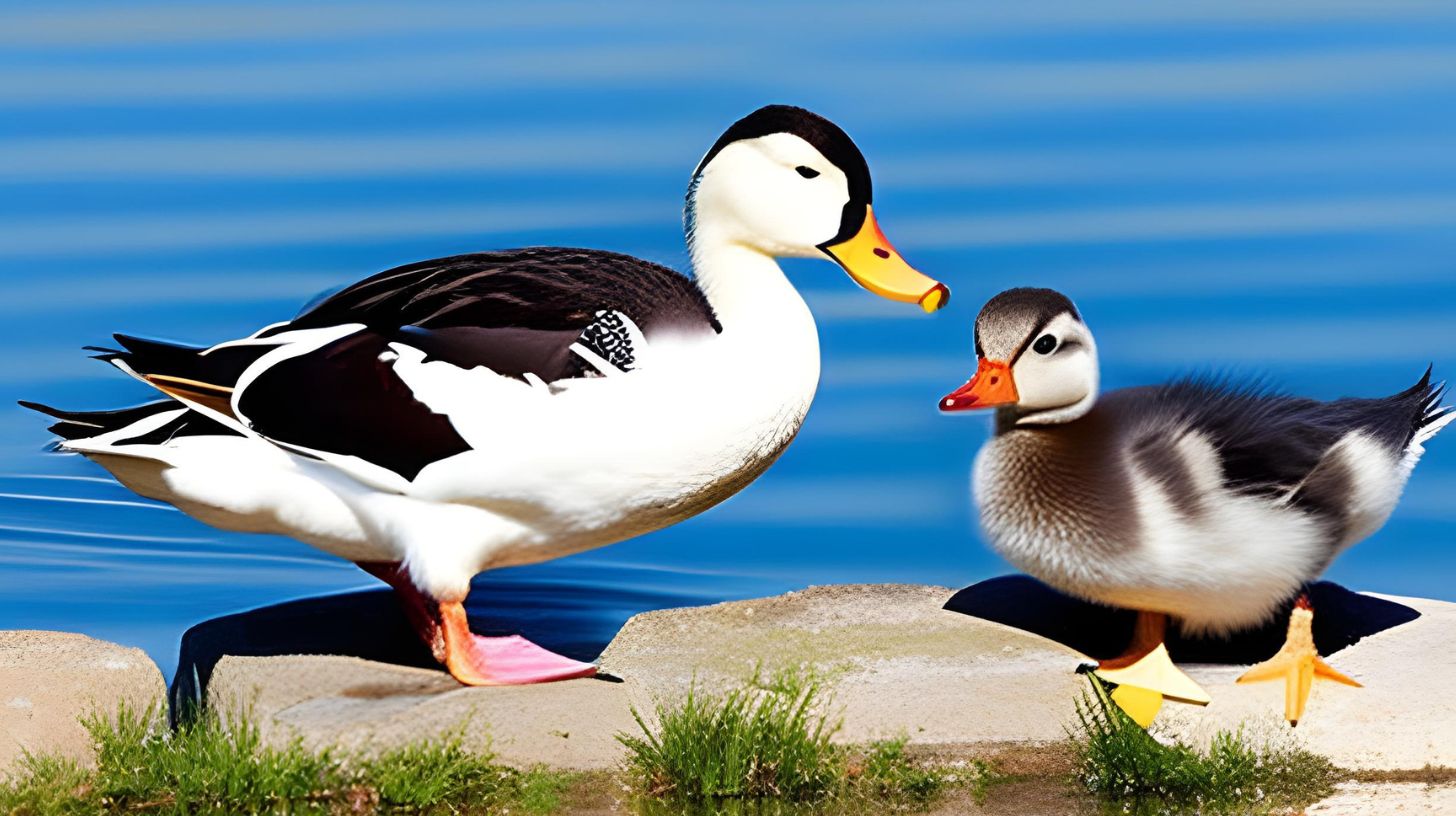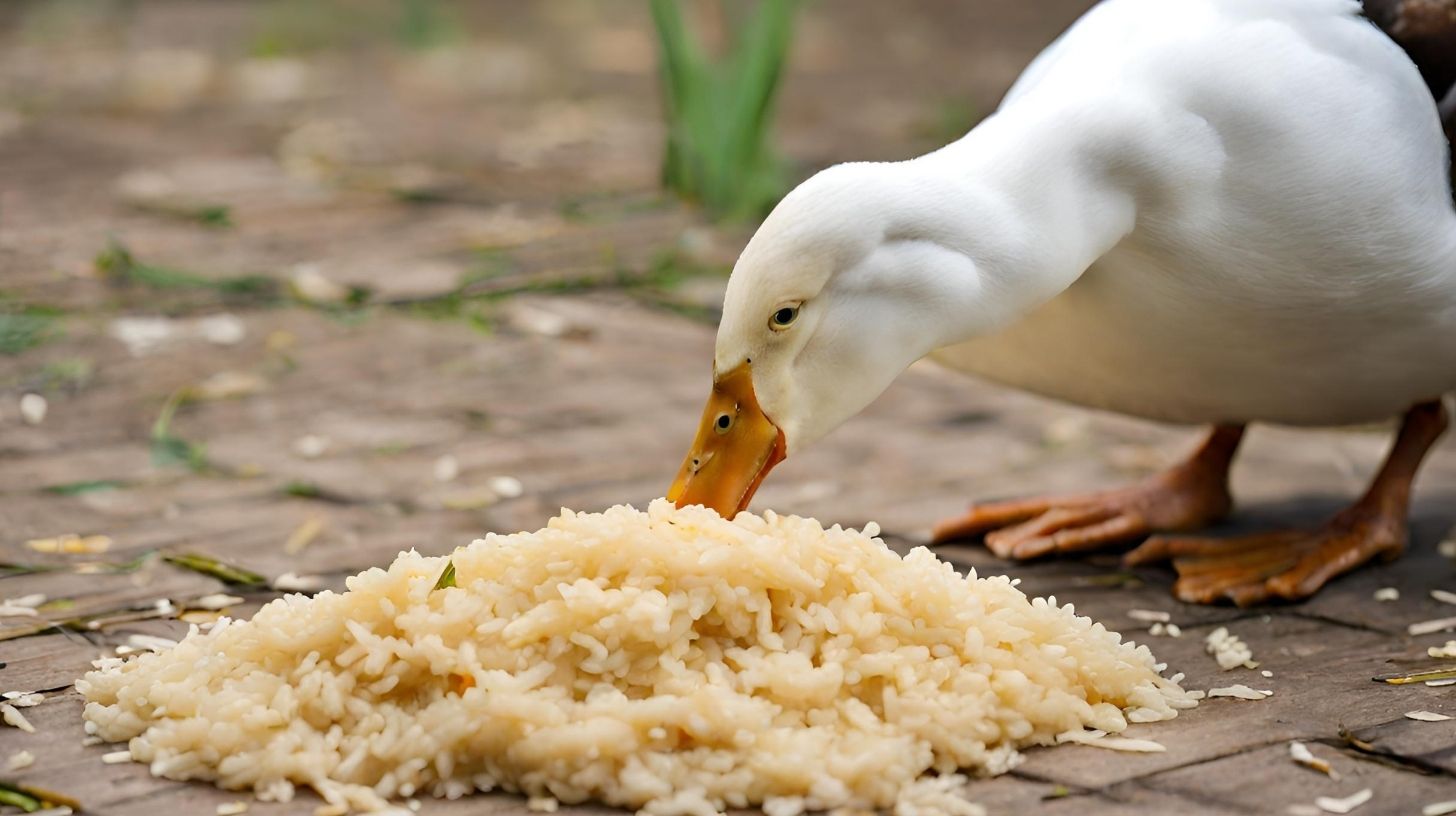Can Ducks Eat Mangoes?

Table of content:
Ducks are a common sight around lakes, ponds, and other waterways. As these aquatic birds paddle through the water searching for food, you may have wondered – can ducks eat fruit like mangoes? Mangoes are a nutritious tropical fruit that humans enjoy, but are they safe and healthy for ducks to eat as well?
The Nutritional Value of Mangoes
Mangoes are a delicious tropical fruit cultivated in many warm regions of the world. This sweet, juicy fruit is packed with beneficial nutrients like:
- Vitamin C – Mangoes are high in immune-boosting vitamin C. One mango contains over 100% of the daily recommended intake.
- Vitamin A – Mangoes have high levels of provitamin A carotenoids, which are converted to vitamin A in the body. Vitamin A is important for vision, growth, immune function and reproduction.
- Potassium – Mangoes are a good source of potassium, which supports nerve transmission, muscle contraction and heart health.
- Antioxidants – Mangoes contain antioxidants like quercetin, astragalin, gallic acid and methyl gallate. These can reduce inflammation and protect cells from damage.
- Fiber – Mangoes provide both soluble and insoluble fiber, which promotes digestive and heart health.
With this impressive nutritional profile, mangoes can be part of a healthy diet for humans. But can ducks also benefit from the nutrients found in this fruit?
Benefits of Mangoes for Ducks
Here are some of the potential benefits ducks could gain from eating mangoes:
Vitamins and Minerals
Mangoes contain high amounts of vitamin C, vitamin A, potassium and other important micronutrients. These can complement the vitamins and minerals ducks get from their natural aquatic diet. Added vitamins could boost duck health and nutrition.
Antioxidants
The antioxidants in mangoes help fight disease by reducing oxidative stress in the body. Ducks eating mangoes may experience decreased inflammation and cellular damage from these protective compounds.
Energy and Carbohydrates
Mangoes are a high-calorie fruit, providing significant amounts of natural sugars and carbohydrates. For growing ducklings or egg-laying females, extra mangoes in the diet could give an energy boost.
Added Variety
In the wild, ducks enjoy diverse foods like aquatic plants, insects, snails and fish. Mangoes can add variety and interest to a captive or domesticated duck’s diet. This makes their meals more stimulating and enjoyable.
Occasional Treat
Used sparingly, mangoes can be a tasty, sweet treat for pet or farmed ducks. Much like humans enjoying fruit as a dessert, ducks may find mango flesh delightful as an occasional snack.
So in small quantities, mangoes appear to offer some benefits for duck health and enjoyment. But there are also some notable risks with overfeeding mangoes to ducks.
Risks of Overfeeding Mangoes to Ducks
While mangoes have advantages, they are not an ideal everyday food choice for ducks. Here are some of the risks of feeding too many mangoes:
Excess Sugar Content
Mangoes are high in natural sugars like sucrose, fructose and glucose. Eating too much could spike a duck’s blood sugar to unhealthy levels or lead to weight gain.
Difficulty Digesting Skin and Fibers
A duck’s digestive system is designed to break down protein-rich animal foods, not the complex carbohydrates in fruit. They may struggle to properly digest mango skins, peels and fibers.
Blockages in Digestive Tract
The skin, peel, pit, stems or fibers of mangoes could get lodged in a duck’s esophagus, gizzard or intestines. This can lead to dangerous obstructions.
Nutrient Imbalances
Overdoing mangoes could lead to an imbalance of carbohydrates, sugars, vitamins and minerals in a duck’s diet. This takes away from the aquatic nutrition they require.
Loss of Foraging Behaviors
Ducks in the wild spend much of their time foraging for varied foods. Being handed mangoes takes away opportunities to display natural feeding behaviors.
Excess Calories and Obesity
With abundant mangoes, ducks could start gaining excess fat and weight. Obesity leads to joint problems, liver disease and other health issues in ducks.
Potential Exposure to Pesticides
Commercially grown mangoes may contain pesticide residue if not organically grown. Exposure to these chemicals poses health risks for ducks over time.
Increased Competition and Aggression
Ducks may fight over chopped up mangoes. This can lead to injuries or exclusion of younger/weaker ducks who lose out on the treat.
For all these reasons, it’s best to limit mango feeding or avoid it altogether in most cases. The risks tend to outweigh benefits when mangoes make up a substantial portion of a duck’s diet.
Can Ducks Eat Mango Skin and Peels?
Two specific mango parts – the skin and peels – deserve special attention when it comes to ducks. Mango skins are thicker and less fleshy compared to the soft pulp. The peel refers to the leathery outer layer covering the mango’s flesh and pit. Can ducks safely eat mango skins and peels?
Unfortunately, mango skins and peels pose major digestive challenges for ducks:
- High Fiber Content – Mango skin and peels are very fibrous. Ducks lack the gut enzymes needed to properly digest insoluble dietary fiber.
- Choking Hazard – The dense, chewy texture of mango peels could obstruct a duck’s esophagus when swallowed.
- Intestinal Blockages – Long strips of mango skin/peel may ball up in the duck’s gizzard or intestines, blocking the digestive tract. This can have fatal consequences if left untreated.
- Discomfort or Pain – Attempting to pass fibrous, rubbery mango peel through their system can cause ducks distress.
- Reduced Nutrient Absorption – The excessive fiber content in the peels can prevent ducks from digesting and absorbing other nutrients properly.
Overall, it’s best to avoid feeding mango skins and peels to ducks entirely. The flesh can be fed sparingly in moderation, but the skin poses too many hazards for ducks. Remove all peel and skin before offering mango to ducks.
Healthy Duck Diet and Feeding Tips
While mangoes should only be an occasional treat, what makes up the bulk of a balanced duck diet? Here are some healthy feeding tips for duck owners:
- Offer formulated waterfowl feed – Choose a pelleted ration designed for the duck’s life stage and activity level. This will provide complete nutrition.
- Provide grit – Grit helps ducks grind up fibrous plant matter in their gizzard. Supply grit in a separate dish.
- Include chopped greens – Chopped kale, lettuce, watercress and duckweed provide valuable nutrients. Roughly chop larger leaves.
- Offer a flock block – A mineralized salt block gives ducks added nutrients as they nibble.
- Feed chopped fruits/veg sparingly – A few chopped melon cubes, berries, peas or corn can add variety in moderation.
- Meet nutritional needs – Provide proper nutrition for ducklings, molting adults, or breeding ducks.
- Avoid choking hazards – Ducks gulp down food. Avoid whole grapes, large chunks, or hard foods.
- Ensure adequate water – Ducks need constant access to clean water for drinking and bathing.
- Keep feed clean and dry – Feeders should be kept clean to avoid moldy, wet feed that could cause illness.
Following these tips will keep backyard or pet ducks happy and healthy. Be sure to consult waterfowl specialists for guidance tailoring your duck’s diet.
Can Wild Ducks Eat Mangoes?
As we’ve explored, mangoes are not an ideal major food source for ducks. But in tropical regions like Hawaii, India or the Philippines where mangoes grow abundantly, wild ducks may naturally snack on mangoes.
Fruit-eating is uncommon behavior in wild ducks. Their diet focuses on protein-rich aquatic foods. However, mangoes periodically falling into ponds or rivers might attract wild ducks to try this fruit.
Several factors influence whether wild ducks will consume mangoes:
- Hunger or Limited Food Availability – During times of drought or winter when aquatic foods are scarce, mangoes may help fill dietary gaps.
- Natural Foraging Behaviors – As omnivores and opportunistic feeders, ducks’ curiosity may lead them to sample readily available mangoes.
- Lack of Natural Predators – Mangoes grow in tropical locations where ducks have fewer predators. Less time evading predators allows foraging innovation.
- Abundant Mango Supply – Ducks are more likely to eat mangoes where mango groves thrive near waterways used by ducks.
- Dietary Adaptations – Some wild ducks may be better adapted to digest fruits based on their gut microbiome and foraging passed down.
However, cases of wild ducks seeking out and consuming mangoes frequently are likely rare. Mangoes simply do not provide the nutrition profile wild ducks are adapted to thrive on long-term.
Conclusion on Can Ducks Eat Mango
Ducks are better off skipping the mangoes and feasting on their species-appropriate aquatic foods instead. Mangoes are a human delicacy that ducks just aren’t equipped to digest safely. Offering tiny mango nibbles once in a while can be fun, but moderation is a must. By understanding proper duck nutrition and the risks of what human foods to avoid, duck owners can help keep their web-footed pals both happy and healthy!
Welcome. I’m Adreena Shanum, the proud owner of this website, and I am incredibly passionate about animals, especially poultry. I founded adreenapets.com as a labor of love, stemming from my desire to share my knowledge and experiences with poultry enthusiasts worldwide.




